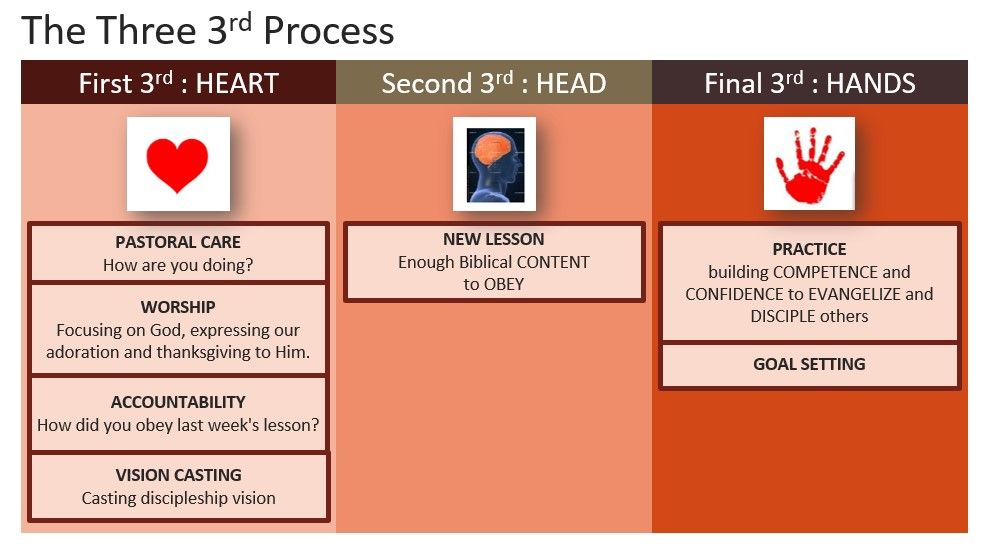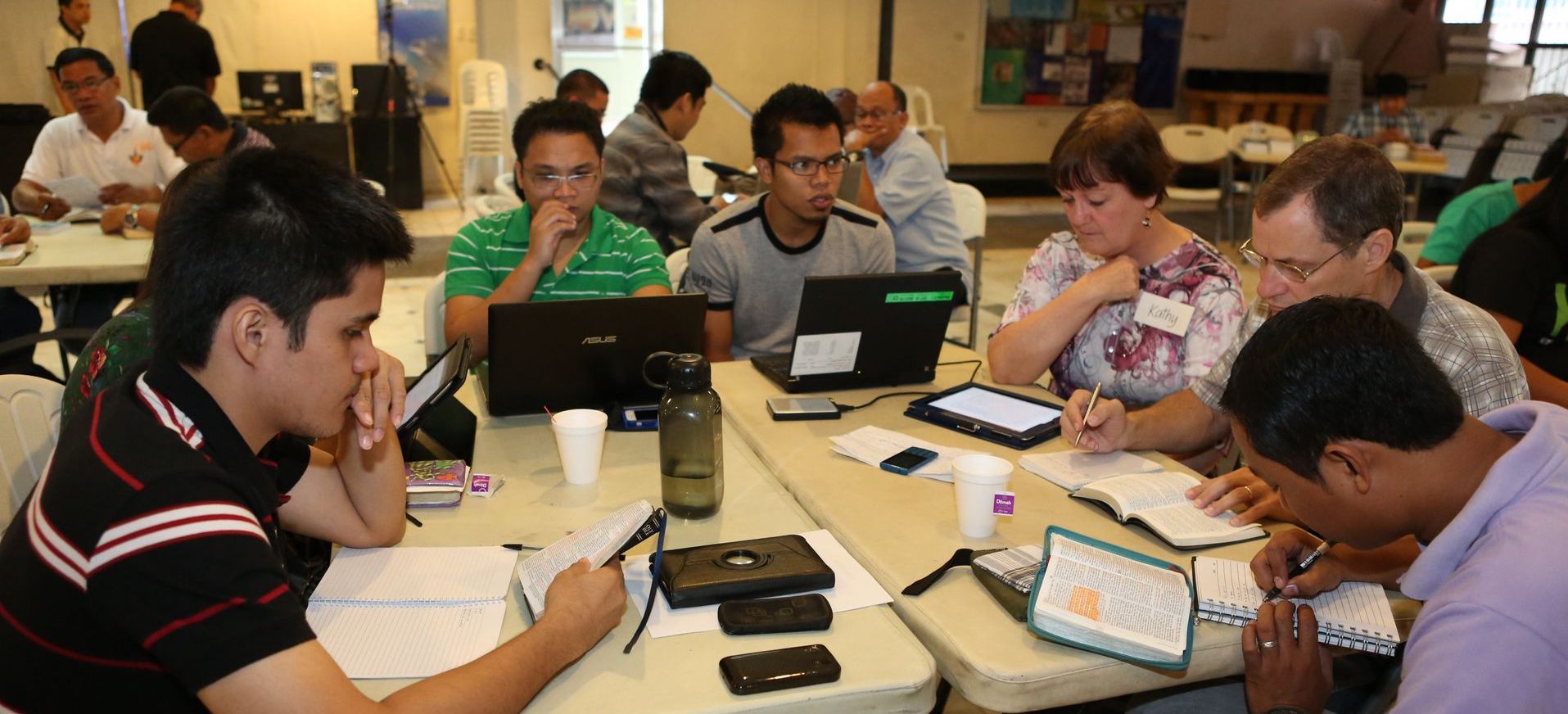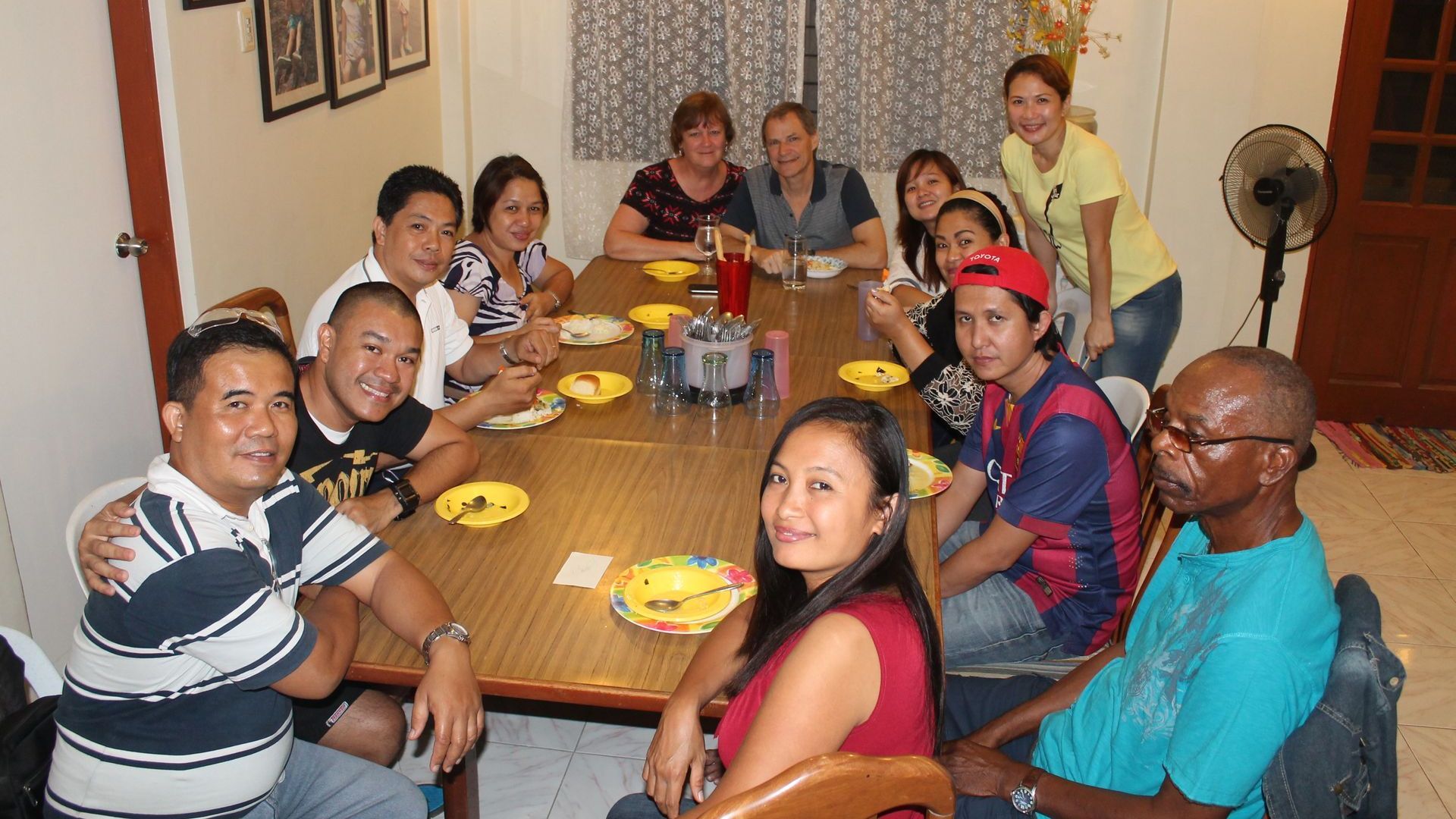In my first church planting work, I remember being asked in a small group, “What gives you the most happiness in life?” My answer was, “Leading someone to Christ.” That really gave me so much joy. But I remember being asked that question again during my most recent church plant. My answer this time was, “When I see people I led to Christ and discipled leading others to Christ and discipling them.” It seemed almost weekly that we heard of a fairly new believer starting evangelistic Bible study with someone new. Often it was someone that was being discipled by someone who was being discipled by someone we had discipled. Kathy and I would just laugh with joy and amazement at the way the Gospel was going way beyond our reach.
I’m sure that’s what Jesus had in mind when he told the disciples to make disciples of all nations. There was no way that they personally could finish that task. Rather they needed to do it themselves AND equip others to do the same thing. Did you ever notice that the Great Commission is somewhat circular? “Go and make disciples … teaching them to obey everything
I have commanded you.”
“Everything” includes the Great Commission itself. Jesus is in essence saying, “Go and make obedient, baptized disciples who will go and make obedient, baptized disciples who will go and make obedient, baptized disciples in obedience to this command of mine.”
This means that every generation of disciples is to be taught to obey the Great Commission. We are to make disciple makers who will make disciple makers who will make yet more disciple makers. The job is not finished when we have disciples. The job is done when we have multiplying disciple makers who will take the Gospel on into places we ourselves can never reach.
So, are you just planting a church of disciples, or are you planting a movement of disciple makers? Paul told Timothy, “The things you learned from me teach to reliable men who will be able to teach others also.”
That’s 4 generations of disciples.
When our church in the Philippines had to shut its doors because of the Covid-19 lockdowns, the youth in the church immediately determined to continue the disciple-making process that we and our team had begun with them online with their friends.
Kathy and I…
had gone through the evangelistic process and basic discipleship process with a young couple who were there to work with the youth in the church plant.
The young couple…
then took the small group of youth through the same process in one-on-one or small group meetings, and in the process assigned
the youth…
to continue to use it with all new, incoming young people and with their lost friends.
That’s 4 generations of disciples.
When the pandemic closed the church, there were about 14 regular youth in the core group and all were equipped to win the lost and do beginning discipleship with the new believers. They immediately took the opportunity to set up online Bible study groups with their friends who were also locked down. Now a year and a half later, we see social media posts from the group with maybe 50 young people and we don’t even personally know either the discipler makers or the disciples. Each one is being followed up online by a young person who was equipped by someone before them. They post pictures of the disciple and the disciple maker on Facebook when a youth finishes a phase of disciple making.
A Culture of Movement and Multiplication
For this to happen, there needs to be a culture of movement and multiplication. The leaders need to be committed to equipping others more than doing it themselves. It’s not just equipping others to disciple others. It’s equipping others to equip others to equip others. We do everything with long-term multiplication in view.
Pass it on!
A young man we knew named Ivan came to Christ in our area. I asked another member in the church who we had discipled to work with Ivan and disciple him. Not long after, Ivan came and asked if we would also teach his friends. We told him, “No, but we will help you to teach them.” Ivan started a Bible study with about 15 of his classmates, just doing with them what we had done with him. Later he was getting ready to teach another group of students, and I reminded him of our ministry’s motto, “Pass it on.” Don’t just teach it yourself. Who can you help learn to pass it on? Ivan then immediately thought of and recruited two ladies in the church to help him who were newly discipled but had not yet taught others. And so it goes on.
To have a culture of movement and multiplication of disciples…
- The leadership team needs to be committed to this.
- The church sees itself as living to multiply disciple makers.
- There should be a prayerful dependence on the Holy Spirit throughout, knowing that we can only see true movement if He moves.
- There needs to be a firm conviction that the Holy Spirit indwells and empowers all believers to be His witnesses and to do His ministry.
- From the very beginning new people need to be encouraged that they can pass on whatever they have received. They don’t have to grow to maturity to pass on the things they already know and are applying in their lives. They just need to stay a step ahead of the one coming behind.
- The process and tools need to be reproducible and simple so that anyone can participate.
- The growth track needs to be simple and clearly understood.
- The movement can have mottos and slogans and signs that reinforce the movement mentality.
- Those going through and carrying on the discipleship need to be celebrated.
- And there should be development of leaders who are very intentional in equipping and enabling the believers to join the movement of God in this world.
We’ll look more at developing a simple tool kit for disciple making in future articles.
What simple bridge into the Gospel could you train your new believers to use with their lost friends and family to start a witnessing opportunity?
What simple Gospel-sharing tool can you enable brand new believers to share with their family or friends?
What immediate follow-up tool or method can you use with new believers that they could turn around and use with newer believers?
What early discipleship tool or method will you use that they can turn around and use with another?
We want to start movements of disciple making, not just make disciples.














